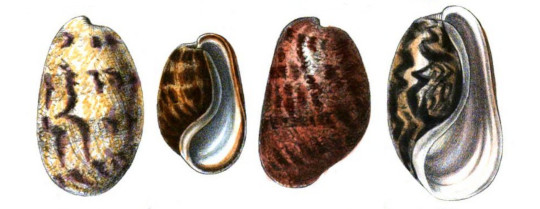Robert Louis Stevenson? Florence Davies? Apocryphal?

Question for Quote Investigator: The Scottish author Robert Louis Stevenson is best known for his famous novels, e.g., “Treasure Island” and “Strange Case of Dr Jekyll and Mr Hyde”. He believed that an individual should be invigorated by desires, interests, and aspirations otherwise he or she will lead a blank life. Stevenson gave shell collecting as an example of a worthy interest. Would you please help me to find a citation?
Reply from Quote Investigator: In the spring of 1879 Robert Louis Stevenson wrote a few draft chapters for a projected treatise on ethics; however, he never completed the treatise. Stevenson died in 1894, and a multi-volume set containing “The Works of Robert Louis Stevenson” was published during the ensuing years. The unrevised draft chapters appeared in volume four in 1896 under the title “Lay Morals”. The following excerpt criticized idle rich people and complimented shell collecting. Emphasis added the excerpts by QI:1
But money is only a means; it presupposes a man to use it. The rich can go where he pleases, but perhaps please himself nowhere. He can buy a library or visit the whole world, but perhaps has neither patience to read nor intelligence to see. The table may be loaded and the appetite wanting ; the purse may be full, and the heart empty. He may have gained the world and lost himself; and with all his wealth around him, in a great house and spacious and beautiful demesne, he may live as blank a life as any tattered ditcher.
Without an appetite, without an aspiration, void of appreciation, bankrupt of desire and hope, there, in his great house, let him sit and look upon his fingers. It is perhaps a more fortunate destiny to have a taste for collecting shells than to be born a millionaire. Although neither is to be despised, it is always better policy to learn an interest than to make a thousand pounds; for the money will soon be spent, or perhaps you may feel no joy in spending it; but the interest remains imperishable and ever new.
Below are additional selected citations in chronological order.
In 1905 “The Pocket R.L.S.: Being Favourite Passages from the Works of Stevenson” was published. The book included an excerpt from “Lay Morals” containing the highlighted sentence above.2
In 1922 columnist Florence Davies writing in “Buffalo Evening News” of New York printed the quotation about shells. She also observed that beautifully displayed collections unfortunately require dusting:3
When the modern woman in the modern apartment starts in to dust the bric-a-brac, she is tempted to doubt the wisdom of Robert Louis Stevenson when he exclaimed, “It is perhaps a more fortunate destiny to have a taste for collecting shells than to be born a millionaire.”
“Yes, by all means,” we might add, “if only we had a place to put the shells.” For the modern woman has long since learned the tyranny of things and the high cost of paying rent for a place to put them.
The quotation appeared in the 1949 edition of “The Home Book of Quotations: Classical and Modern” compiled by Burton Stevenson:4
It is perhaps a more fortunate destiny to have a taste for collecting shells than to be born a millionaire.
R. L. STEVENSON, Lay Morals.
The statement ascribed to Stevenson also appeared in “The Book of Unusual Quotations” compiled by Rudolf Flesch in 1957.5
In addition, the 1997 book “Reader’s Digest Quotable Quotes” included Stevenson’s remark.6
In conclusion, Robert Louis Stevenson should receive credit for the words published posthumously in the 1896 citation listed above. The note accompanying the text stated that Stevenson penned the unrevised draft while residing in Edinburgh, Scotland in the spring of 1879.
Image Notes: Illustrations of shells from plate 35 of “Manual of Conchology: Structural and Systematic” (1893) by George W. Tryon; continuation by Henry A. Pilsbry, Volume 15: Polyplacophora, Published by Conchological Section of the Academy of Natural Sciences, Philadelphia, Pennsylvania.
Acknowledgement: Great thanks to Erin White whose inquiry led QI to formulate this question and perform this exploration. White pointed to an instance of the quotation on an unreliable aggregation website and wanted to know the validity of the ascription to Robert Louis Stevenson.
Update History: On April 4, 2025 the format of the bibliographical notes was updated.
- 1896, The Works of Robert Louis Stevenson, Miscellanies, Volume 4, Lay Morals, Start Page 313, Quote Page 360, Printed by T. and A. Constable for Longmans Green and Company, Sold by Chatto and Windus, London. (Google Books Full View) link ↩︎
- 1905, The Pocket R.L.S.: Being Favourite Passages from the Works of Stevenson (Robert Louis Stevenson), Quote Page 79, Charles Scribner’s Sons, New York. (Google Books Full View) link ↩︎
- 1922 August 24, Buffalo Evening News, An Editorial for Women Readers by Florence Davies, Quote Page 8, Column 4, Buffalo, New York. (Newspapers_com) ↩︎
- 1949, The Home Book of Quotations: Classical and Modern, Compiled by Burton Stevenson, Sixth Edition, Topic: Sea-Shells, Quote Page 1781, Dodd, Mead and Company, New York. (Verified with scans) ↩︎
- 1957, The Book of Unusual Quotations, Compiled by Rudolf Flesch, Topic: Idea, Quote Page 124, Harper & Brothers, New York. (Verified with scans) ↩︎
- 1997, Reader’s Digest Quotable Quotes: Wit and Wisdom for All Occasions, Quote Page 170, Published by Reader’s Digest Association, Pleasantville, New York. (Verified with hardcopy) ↩︎